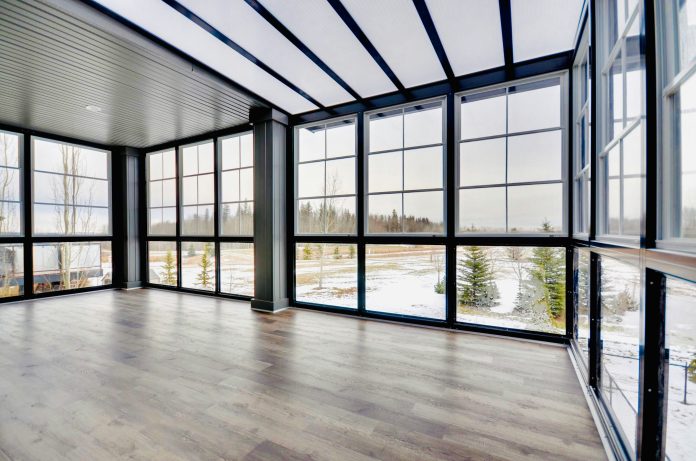When designing or renovating a commercial space, one of the most critical decisions is selecting the right flooring. The flooring you choose not only contributes to the aesthetics of your building but also affects its functionality, durability, and overall atmosphere. With many options available in the market, it can be overwhelming to narrow down the choices. However, by considering several key factors, you can ensure that you select the flooring best suited for your commercial environment.
Traffic & Usage Patterns
The level of foot traffic your commercial space experiences daily is crucial in determining the type of flooring you should opt for. High-traffic areas such as retail stores, offices, or public buildings require durable flooring materials that can withstand constant use without showing wear and tear. Consider materials like porcelain tile, luxury vinyl tiles, or epoxy flooring for such spaces. On the other hand, for areas with minimal foot traffic, such as conference rooms or executive offices, you can explore options like hardwood or carpeting for a more sophisticated look.
Maintenance Requirements
Another essential consideration is the maintenance needs of the flooring material. In a commercial setting, where cleanliness and hygiene are paramount, opting for flooring that is easy to clean and maintain can save you both time and money in the long run. For instance, carpets may require regular vacuuming and professional cleaning to prevent the buildup of dirt and allergens. In contrast, materials like polished concrete or ceramic tiles are relatively low-maintenance, and you can easily clean them with a mop and mild detergent.
Durability & Longevity
Investing in durable flooring is essential to ensure that it withstands the rigours of daily use and maintains its appearance over time. Factors such as the material’s resistance to scratches, stains, and moisture ingress are factors to consider when deciding on your flooring material. For areas prone to spills or moisture, such as kitchens or bathrooms, consider waterproof flooring options like ceramic tiles, luxury vinyl planks, or concrete sealants. Additionally, assess the warranty offered by the manufacturer to gauge the expected lifespan of the flooring material.
Aesthetics & Brand Image
The flooring you choose plays a significant role in shaping your commercial space’s aesthetic appeal and brand image. Whether you prefer a sleek and modern look or a warm and inviting ambience, selecting the right flooring material can help you achieve your desired aesthetic goals. Consider factors such as colour, texture, and pattern to ensure that the flooring complements the overall design theme of your space and reflects your brand’s identity.
Acoustics & Sound Insulation
In commercial environments such as offices, educational institutions, or healthcare facilities, noise control is crucial for maintaining a productive and comfortable atmosphere. Certain flooring materials, such as hardwood or laminate, may amplify sound and create noise pollution within the space. In such cases, opting for acoustic flooring solutions like carpet tiles or rubber flooring can help absorb sound and reduce reverberation, creating a quieter environment conducive to concentration and communication.
Budget Constraints
Budgetary considerations are inevitable when selecting flooring for your commercial space. While it’s essential to invest in quality flooring materials that meet your requirements, staying within your budget is also crucial. Evaluate the cost of materials, installation, and long-term maintenance to determine the overall affordability of each flooring option. Remember that opting for cheaper alternatives may result in higher maintenance costs or shorter lifespans, ultimately impacting your bottom line.
Compliance With Building Regulations
Before finalising your flooring choice, ensure it complies with relevant building regulations and safety standards. Certain industries, such as healthcare or food service, have specific requirements for flooring materials to maintain hygiene and safety standards. Additionally, consider factors such as slip resistance, fire retardancy, and indoor air quality when selecting flooring options to ensure the well-being of occupants and compliance with legal requirements.
Environmental Impact
With growing awareness of sustainability and environmental conservation, many businesses opt for eco-friendly flooring options that minimise their carbon footprint. Look for flooring materials made from renewable or recycled materials with low emissions of volatile organic compounds (VOCs). Additionally, consider the manufacturing process’s energy efficiency and the product’s recyclability or biodegradability at the end of its lifespan. Reputable flooring companies like Lake & Co Flooring have a wide selection of flooring materials available, including environmentally friendly options.
Choosing the right flooring for your commercial space requires careful consideration of various factors ranging from durability and maintenance requirements to aesthetics and environmental impact. By assessing your specific needs and priorities, you can select a flooring material that not only enhances the visual appeal of your space but also provides long-lasting performance and contributes to a healthy and productive environment for occupants. Remember to consult with flooring experts and conduct thorough research to make an informed decision that aligns with your budget and objectives.

